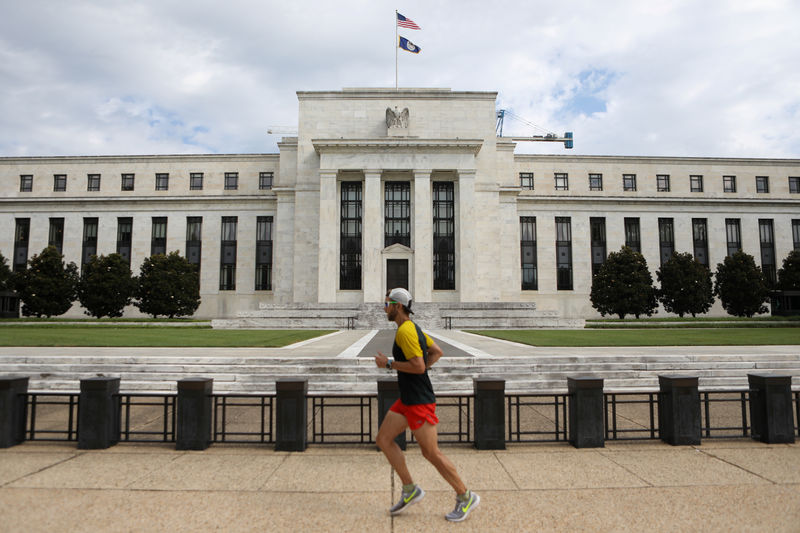By Yasin Ebrahim
Investing.com -- The red-hot pace of inflation showed no sign of abating, spurred on price spikes in energy, metals and agricultural commodities following the Russian invasion of Ukraine and recent Covid-19 lockdowns in China that have worsened supply chain disruptions, according to the Federal Reserve's Beige Book released Wednesday.
"Inflationary pressures remained strong since the last report, with firms continuing to pass swiftly rising input costs through to customers," the Fed said in its Beige Book economic report, based on anecdotal information collected by the Fed’s 12 reserve banks through April 11.
Against the backdrop of above-trend inflation the economic activity expanded at a "moderate pace since mid-February," the report added.
Firms, however, have been able to pass on rising input costs to consumers, who have "accelerated" spending as Covid-19 cases tapered across the country, the report said.
In another sign of a tight labor market, the report flagged an "overall lack of available workers" as one of the factors keeping a lid on hiring and adding to the pace of inflation.
Data last week showed that U.S. inflation climbed at its fastest pace since 1981, rising 8.5% in the 12 months through March.
"Firms reported that inflationary pressures were also contributing to higher wages, and that higher wages were doing little to alleviate widespread job vacancies. But some contacts reported early signs that the strong pace of wage growth had begun to slow," the report showed.
Many fear the ongoing rise in wage pressures will keep inflation above the Fed's 2% target for a prolonged period, and force the central bank to turn even more hawkish on its plan to tighten monetary policy.
“The Fed has primed markets for a +50bp hike in May, and pricing has obliged, with futures placing a 98.1% probability of a +50bp rise, along with +246bps of tightening for the entire year,” Deutsche Bank said in a note.
